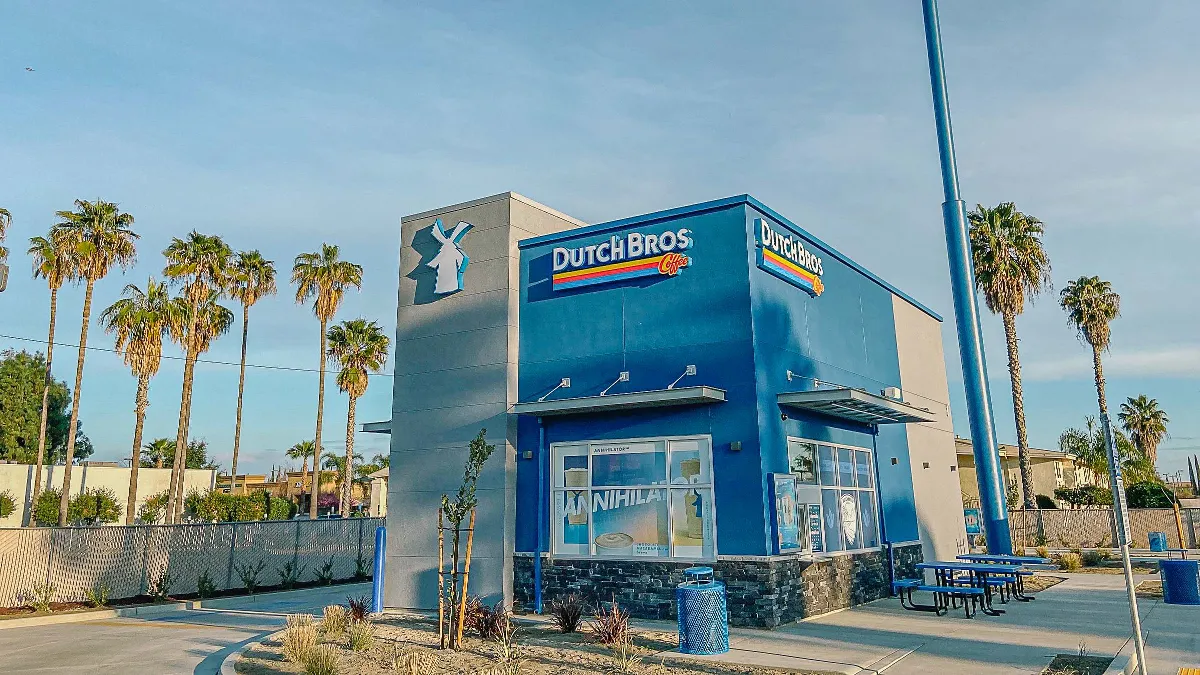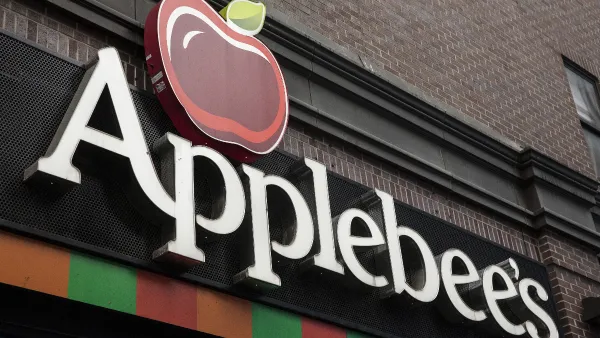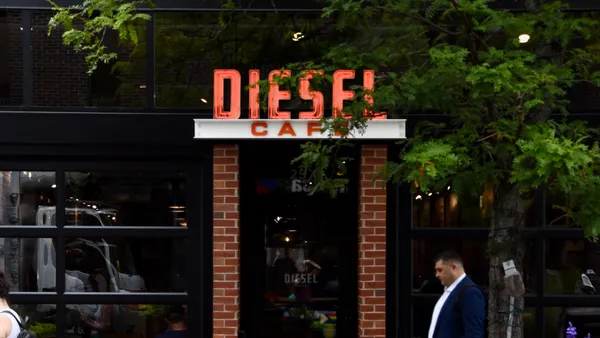Dive Brief:
- Dutch Bros’ same-store sales rose 6.9%, with transactions up 2.3% in Q4 2024. This marked its strongest quarter of transaction growth since 2022, CEO and president Christine Barrone said on the chain’s Wednesday earnings call.
- Q4 was the first full quarter in which consumers nationwide could use mobile ordering. Barrone said 96% of the chain’s store system, including 99% of company-owned stores, offer mobile ordering. Eight percent of sales came through the channel for the period.
- Dutch Bros began testing the mobile order system in Arizona a year ago, before expanding the test in the spring.
Dive Insight:
Mobile order is a key element of the business model for many QSRs, especially coffee shops, and Dutch Bros’ largest competitor, Starbucks, is in the middle of changing its mobile order functionality to reduce order gluts.
Dutch Bros rewards members placed 5.4 million mobile orders by the end of December, Barrone said Rewards member orders across all channels accounted for 71% of transactions in Q4.
“Customers who use mobile order increase their frequency and mobile order penetration is more than twice the level of our overall system in some of our newer markets,” Barrone said.
The mobile order system is most active in the morning daypart, with an emphasis on coffee-based beverages. Mobile orders tend to be picked up at the walk-up window rather than through the drive-thru, Barrone said. This concentration is not hurting the brand’s operations, at least when stores have adequate labor.
“One of the benefits of mobile order is really in helping with throughput. One, because it takes out that order time as mobile order penetration grows. And it also balances our production,” Barrone said.
The coffee brand also began testing a food program last quarter, with the pilot now active in eight stores, Barrone said.
“This initial test has been focused on understanding the optimal assortment and how an expanded food program interacts with our existing operations,” Barrone said. The early results indicate an expanded food offering could be viable, though. The company wants to expand its program without hurting employee retention or order throughput, she said.
Ultimately, a Dutch Bros food program would offer a “targeted assortment focused on capturing the food attach opportunity and the potential incremental beverage opportunity while minimizing complexity,” Barrone said.
“Food makes up less than 2% of our total sales and we are likely missing morning beverage transactions from would-be customers who are not satisfied with our current food offerings,” she said.
Despite its overall strong performance, Dutch Bros’ 305 franchised stores did not see the same degree of transaction growth as the brand’s 645 company-operated stores, according to the chain’s Q4 earnings release. Comparable transactions actually fell 0.1% systemwide in 2024, while transactions at company-operated shops rose 1.5%.
Joe Guenser, Dutch Bros’ chief financial officer, said the divergence in results between company-operated and franchised stores stem from the company’s performance in newer markets, where its corporate system is growing faster than those of its franchisees. Guenser told analysts he expects that disparity to last throughout 2025.














